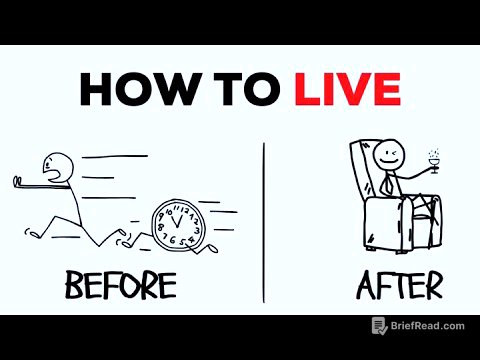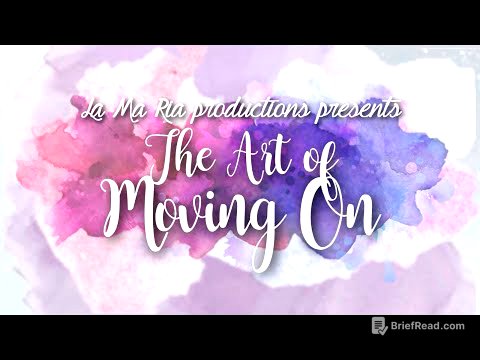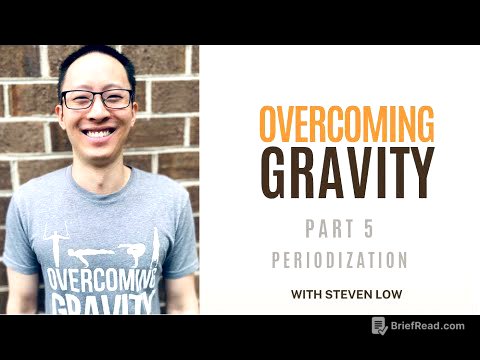TLDR;
The FUNG BROS, along with Jack and Nelly, discuss Hans Y's video "Why Everyone Hates Asian Men" and offer their perspectives on the issues raised and potential solutions. They agree that Asian men face significant dislike and invisibility, and they break down Hans Y's action items for combating this hate, adding their own insights and experiences. The discussion covers self-improvement, self-defense, standing up against disrespect, community solidarity, and the importance of authenticity.
- Self-improvement and addressing internal issues are crucial first steps.
- Self-defense training and learning to stand up for oneself are important, but violence should not be the first response.
- Community solidarity and self-love are essential for overcoming negative stereotypes and external hate.
Intro [0:00]
The FUNG BROS introduce Jack and Nelly to discuss Hans Y's video, "Why Everyone Hates Asian Men." They acknowledge the video's comprehensive overview of the issue and its focus on actionable solutions. The group aims to break down these action items and share their own thoughts on combating the hate Asian men face. They establish that despite some progress, dislike and invisibility towards Asian men persist, often manifesting as disdain rather than outright hate.
Self-Improvement [2:27]
Hans Y's first action item is self-reflection and personal improvement. Jack emphasizes working on oneself for personal satisfaction rather than external validation, focusing on physical fitness, intelligence, and being a good person. He highlights the importance of understanding how you want to be treated and addressing personal traumas and triggers. While physical fitness is beneficial, it doesn't solve internal issues.
Self-Defense and Representation [3:59]
The second point involves learning self-defense and embodying the representation you want to see. Martial arts training is valuable for mental health and stress management. It's also important to engage in social activities like basketball or improv to interact with diverse groups and challenge stereotypes. Jack shares his experiences with racism in basketball and how improving his skills earned him respect. However, he cautions against using violence as a primary response, as it can escalate hate and reinforce negative stereotypes. Instead, he advocates for communication, empathy, and "speaking life" into others to diminish anger and promote understanding.
Standing Up Against Disrespect [8:32]
Hans Y's next point is to stop letting people get away with disrespect. While violence isn't always the answer, standing up for oneself is crucial. It's important to assess whether investing energy into a situation is worthwhile, as internalizing anger and disrespect can be detrimental. Nelly adds that protecting one's peace is paramount, and it's essential to consider whether confronting someone will escalate the situation or drain your energy. The group emphasizes the importance of practicing how to respond in such situations, as many Asians are not accustomed to speaking up and may struggle to articulate their thoughts effectively when confronted.
Cultural Identity [11:34]
The discussion shifts to the importance of not letting Western society dictate one's identity. The panel agrees with Hans Y's point about the negative impact of media portrayals of Asian-American men. They stress the importance of finding an authentic expression of oneself and not being pushed into stereotypical roles. Assimilating into a culture that is already suffering is not the answer; instead, Asian men should strive to define their own cultural space and resist external pressures to conform.
Community Solidarity [12:35]
The group emphasizes the importance of community solidarity, urging Asian men not to project negative experiences with some Asian women onto all Asian women. While some Asian women may exhibit internalized racism or other biases, many others are allies. It's crucial to avoid victim mentality and instead operate from a place of creation and positivity. They also stress the need for Asian men to support each other, transcending divisions based on nationality or background. Internal divisions weaken the community and hinder progress in combating hate.
Self-Love and Community Harmony [14:55]
The panel underscores the importance of self-love and community harmony. They reference a saying that emphasizes cultivating the self, then family, then community, and finally the world. Internal divisions and a lack of self-love contribute to higher suicide rates among Asian-American adults. To foster love from others, one must first learn to love oneself, establish boundaries, and treat oneself with respect. The media often promotes superficial solutions, such as material possessions or dating certain people, but true self-worth comes from within.
Hitting Back [17:56]
The final point addresses the question of how to respond when faced with hate. Instead of advocating for physical retaliation, which can escalate violence and perpetuate negative stereotypes, the group suggests redirecting that energy into self-improvement and community upliftment. This could involve going to the gym, reading a book, treating oneself well, and supporting other Asian men. Jack shares his past experiences with violence and concludes that it ultimately did not solve anything but rather exacerbated the problem.
Final Thoughts [21:10]
The speakers reflect on the progress made in recent years, noting that the current landscape for Asian men is significantly better than in previous decades. They attribute this to increased media representation and a growing understanding of the issues. They also highlight the importance of authenticity, noting that it is a far stronger emotion than love. By embracing truth and radiating positivity, individuals can uplift their communities and foster a more inclusive environment. They encourage viewers to continue practicing self-defense and sparring, as these activities can build confidence and resilience.









